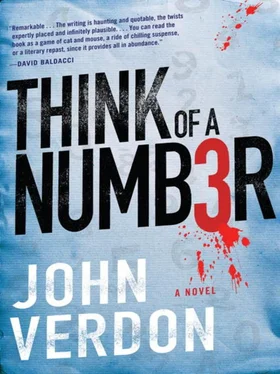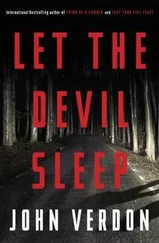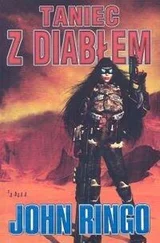“Right.”
“So you don’t need me in the room. Just fill me in when you’re through.”
“Whatever you say, Lieutenant.”
“Door on the right at the top of the stairs. Good luck.”
As he ascended the plain oak staircase, Gurney wondered if the second floor would be any more revealing of the occupant’s personality than the first, which had no more warmth or flair than the computer equipment it housed. The landing at the top of the stairs echoed the redundant security motif established downstairs: a fire extinguisher on the wall, a smoke alarm and sprinklers in the ceiling. Gurney was getting the impression that Gregory Dermott was definitely a belt-and-suspenders guy. He knocked at the door Nardo had indicated.
“Yes?” The response was pained, hoarse, impatient.
“Special Investigator Gurney, Mr. Dermott. May I see you for a minute?”
There was a pause. “Gurney?”
“Dave Gurney. We’ve spoken on the phone.”
“Come in.”
Gurney opened the door into a room darkened by partly closed blinds. It was furnished with a bed, a nightstand, a bureau, an armchair, and a tablelike desk against the wall with a folding chair in front of it. All the wood was dark. The style was contemporary, superficially upscale. The bedspread and carpet were gray, tan, essentially colorless. The room’s occupant sat in the armchair facing the door. He sat tilted a little to one side, as though he’d found an odd position that mitigated his discomfort. To the extent that the underlying personality was visible, it struck Gurney as the techie type one might expect in the computer business. In the low light, his age was less definable. Thirty something would be a reasonable guess.
After studying Gurney’s features as if trying to discern in them the answer to a question, he asked in a low voice, “Did they tell you?”
“Tell me what?”
“About the phone call… from the crazy murderer.”
“I heard about that. Who answered the phone?”
“Answered it? I assume one of the police officers. One came to get me.”
“The caller asked for you by name?”
“I guess… I don’t know… I mean, he must have. The officer said the call was for me.”
“Was there anything familiar about the caller’s voice?”
“It wasn’t normal.”
“How do you mean that?”
“Crazy. Up and down, high like a woman’s voice, then low. Crazy accents. Like it was some kind of creepy joke, but serious, too.” He pressed his fingertips against his temples. “He said that I was next, then you.” He seemed more exasperated than frightened.
“Were there any background sounds?”
“Any what?”
“Did you hear anything other than the caller’s voice-music, traffic, other voices?”
“No. Nothing.”
Gurney nodded, looking around the room. “Do you mind if I sit down?”
“What? No, go ahead.” Dermott gestured broadly to the room as though it were full of chairs.
Gurney sat on the edge of the bed. He had a strong feeling that Gregory Dermott held the key to the case. Now, if only he could think of the right question to ask. The right subject to raise. On the other hand, sometimes the right thing to say was nothing. Create a silence, an empty space, and see how the other guy would choose to fill it. He sat for a long while staring down at the carpet. It was an approach that took patience. It also took good judgment to know when any more empty silence would just be a waste of time. He was approaching that point when Dermott spoke.
“Why me?” The tone was edgy, annoyed-a complaint, not a question-and Gurney chose not to respond.
After a few seconds, Dermott went on, “I think it might have something to do with this house.” He paused. “Let me ask you something, Detective. Do you personally know anyone in the Wycherly police department?”
“No.” He was tempted to ask the reason for the question but assumed he’d soon enough discover it.
“No one at all, present or past?”
“No one.” Seeing something in Dermott’s eyes that seemed to demand further assurance, he added, “Before I saw the check-mailing instructions in the letter to Mark Mellery, I didn’t even know Wycherly existed.”
“And no one ever told you about anything happening in this house?”
“Happening?”
“In this house. A long time ago.”
“No,” said Gurney, intrigued.
Dermott’s discomfort seemed to exceed the effects of a headache.
“What was it that happened?”
“It’s all secondhand information,” said Dermott, “but right after I bought this place, one of the neighbors told me that twenty-some-odd years ago there was a horrible fight here-apparently a husband and wife, and the wife was stabbed.”
“And you see some connection…?”
“It may be a coincidence, but…”
“Yes?”
“I’d pretty much forgotten about it. Until today. This morning when I found-” His lips stretched in a kind of nauseous spasm.
“Take your time,” said Gurney.
Dermott placed both his hands to his temples. “Do you have a gun?”
“I own one.”
“I mean with you.”
“No. I haven’t carried a gun since I left the NYPD. If you’re worried about security, there are more than a dozen armed cops within a hundred yards of this house,” said Gurney.
He didn’t look particularly reassured.
“You were saying you remembered something.”
Dermott nodded. “I’d forgotten all about it, but it came back to me when I saw… all that blood.”
“What came back to you?”
“The woman who was stabbed in this house-she was stabbed in the throat.”
Kill them all
Dermott’s recollection that the neighbor (now deceased) had placed the event “twenty-some-odd years ago” meant that the number could easily be less than twenty-five-and that, in turn, would mean that both John Nardo and Gary Sissek would have been on the force at the time of the attack. Although the picture was far from clear, Gurney could feel another piece of the puzzle starting to rotate into position. He had more questions for Dermott, but they could wait until he got some answers from the lieutenant.
He left Dermott sitting stiffly in his chair by the drawn blinds, looking stressed and uncomfortable. As he started down the staircase, a female officer in scene-of-crime coveralls and latex gloves in the hallway below was asking Nardo what to do next with the areas outside the house that had been examined for trace evidence.
“Keep it taped and off-limits, in case we have to go over it again. Transport the chair, bottle, anything else you’ve got to the station. Set up the back end of the file room as a dedicated area.”
“What about all the junk on the table?”
“Shove it in Colbert’s office for now.”
“He’s not going to like it.”
“I don’t give a flying-Look, just take care of it!”
“Yes, sir.”
“Before you leave, tell Big Tommy to stay in front of the house, tell Pat to stay by the phone. I want everyone else out knocking on doors. I want to know if anyone in the neighborhood saw or heard anything out of the ordinary the past couple of days, especially late last night or early this morning-strangers, cars parked where they aren’t normally parked, anyone hanging around, anyone in a hurry, anything at all.”
“How large a radius you want them to cover?”
Nardo looked at his watch. “Whatever they can cover in the next six hours. Then we’ll decide where to go from there. Anything of interest turns up, I want to be informed immediately.”
As she went off on her mission, Nardo turned to Gurney, who was standing at the foot of the stairs. “Find out anything useful?”
Читать дальше












